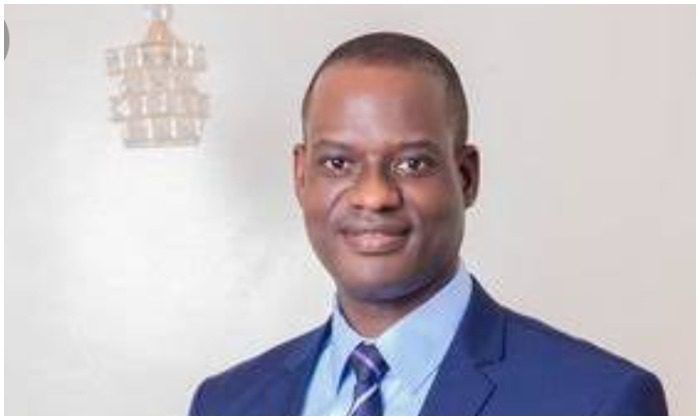The Presidential Fiscal Policy and Tax Reforms Committee plans to send its policy suggestions to the National Assembly by the end of Q3 2024.
These consist of new National Tax and Borrowing Policies to start in September and new proposals to revise the Constitution, which would become effective from 2025.
“We’re now in the process of creating the laws, including potential changes to the Constitution. We expect that by quarter three, our documents will be prepared to be sent to the National Assembly and by the end of that Q3, we should have them made into law,” the Committee’s chairman, Taiwo Oyedele, stated after a close-out retreat held on Saturday at the Transcorp Hilton, Abuja.
Oyedele mentioned that the Federal Government would now exclude 95 per cent of the informal sector and concentrate on the 5 per cent middle class and the elites, stating that “the days of being above the law in paying taxes are over.”
On August 8, 2023, President Bola Tinubu established the Presidential Fiscal Policy and Tax Reforms Committee led by Oyedele, a fiscal policy partner and Africa tax leader at PriceWaterhouseCoopers.
At the inauguration event, Tinubu said, “To guarantee smooth implementation, the Committee shall be empowered not only to make recommendations but also to provide practical support to the government in the execution and delivery of the recommended changes.
“The Committee is anticipated to fulfill its mandate within one year. Initially, they are expected to deliver a list of quick reforms that can be implemented within thirty days.
“Critical reform measures should be suggested within six months, and full implementation will take place within one calendar year.”
On October 24, 2023, Oyedele presented a 30-day Quick Win report to President Tinubu, telling State House Correspondents that the Committee recommended consolidating over 200 taxes paid by Nigerian businesses into 10.
He argued that multiple taxation had reduced the Federal Government’s internal revenue pool rather than increasing it, revealing that only 10 taxes generate 96 per cent of revenues.
Nine months later, Oyedele announced that his committee had closed its proposal phase and is now “consulting with the private sector” for the rest of May.
The Committee expects to obtain internal approvals from the Federal Executive Council, National Economic Council and other government bodies “up until the end of June.”
He explained, “We expect by the Quarter Three, our documents will be prepared to be sent to the National Assembly and by the end of that Q3.
“We should have them made into law so we can give reasonable notice to the public, businesses and individuals before implementation for many of them starts in 2025. But where we have executive orders and directive regulations that don’t require enactment into law, we just need the ministers to sign.
“For instance, we have a new withholding tax regulation where small businesses will be exempt from having to deduct withholding tax. So it’s ready; we’re waiting for the final signature.”
The head of tax reforms suggested a new National Tax Policy and a Spending Policy which would control government spending, along with a Borrowing Policy to ensure that the government fulfills its promises to the people.
He mentioned that all of these changes will occur before the end of this year, while the laws and proposals to amend the Constitution will likely take place in 2025 and 2026.
Oyedele argued that these processes are necessary to make sure the reforms last and are consistent. He added, "We don't want all this effort to be wasted after a year or two if someone comes with a different idea and introduces new taxes. We need to solve this problem once and for all.
When asked about the expected tax threshold for small businesses, he said the Committee has agreed that businesses earning N25m or less per year would be exempt from company income tax and VAT.
He expressed that the informal sector consists of people trying to earn a legal income, and they should be allowed to grow without tax burdens until they are able to pay taxes.
As a result, the Committee believes that 95% of the informal sector should be exempt from all taxes, including withholding tax, company income tax, and payee for their staff.
They propose to focus on the top 5% of the informal sector, the middle class, and the elites for tax collection, indicating that the days of evading taxes are over.
The same principles apply to the leaders, who are expected to lead by example by paying taxes on time and correctly to the relevant authorities.
The Committee is strongly convinced that the government should raise the exemption threshold for small businesses and low-income earners, as it is not fair to demand taxes from those struggling to make ends meet.
He revealed that President Tinubu has instructed relevant government agencies to provide financial assistance to those with very little or nothing when the economy is stable.
He stated that they have the support of sub-national entities and are engaging with various stakeholders, including governors, local governments, small businesses, the private sector, and the international community.
Regarding the flaws in the controversial Cybersecurity Levy, Oyedele urged patience from those dealing with multiple taxations, emphasizing that these issues will take time to resolve.
He mentioned that as they progress from planning to implementation, these issues will become less common.



